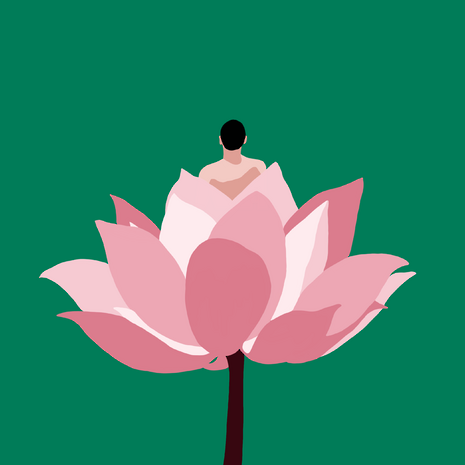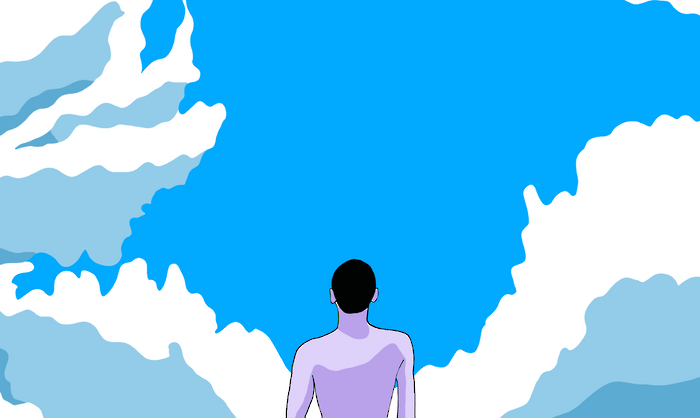Meditate, and help bring calm to yourself
Charlotte Newman explains the basic principles of meditation, emphasising that there is no correct way to meditate, in her latest column on practising mindfulness

Meditation has been practised for thousands of years around the world, with many modern forms of meditation rooted in Buddhism or Hinduism (though other religions have also adopted meditation in different forms). Studies show that regular meditation reduces, among other things, stress, anxiety and increases perceived wellbeing. Meditation can seem very alien at first for anyone who has never tried the practice before, but there are many different types and it is about finding the type of meditation that is right for you. There are different Buddhist forms of meditation, as well as Yoga meditation in Hinduism, Judeo-Christian meditation, chanting (mantra) meditation and more modern meditations. These practices all differ slightly but all allow us to develop greater awareness of ourselves and allow for emotional calm and clear thinking.
The go-to position people usually imagine when they think of meditation is the lotus pose or semi lotus (with legs crossed and one or both feet positioned on top of the leg). You can sit like this if you wish but for a lot of people it is not comfortable; instead you can sit cross legged, in a chair, lying down – whatever is most comfortable for you. Often with meditation we focus on one thing, either something external from the body, for example a candle flame or something within the body, such as the breath. This helps our minds to focus, as I talked about in breathing last week, on the present moment and the exercise. For example, with a breathing meditation, we can bring our awareness to our breath and notice where we feel the breath, and bring our awareness to this moment, to the here and now. We can also visualise the breath entering and travelling down into our core and being released again.
“There is no right or wrong way to meditate”
An important part of mediation is letting go of judgement and allowing thoughts to arise and pass if they occur. It is normal to have thoughts appear in our heads as we meditate (often about tasks we have to do, deadlines or what we should be doing in this time), but we must be gentle and patient with ourselves. Acceptance is key to meditation and allowing any thoughts that occur to arise and pass without judging ourselves for ‘becoming distracted’, we can observe our thoughts and then return our focus back to our breathing or mantra. Meditation is about letting go of control, of accepting this present moment and though we focus to bring awareness and calm the mind we are kind to ourselves if we lose that awareness momentarily. Everyone is on their own path and it takes time to find a meditation that works for you and begins to bring you peace. Particularly in loving kindness meditations, where the purpose is to imagine sending loving kindness and compassion to yourself and others, it is emphasised to just allow thoughts to appear and if they do to acknowledge that and let them pass – we are gentle with ourselves.
You can meditate in silence, along to meditative music, or there are guided meditations that take you slowly through the process. (There are various apps that provide guided meditations but some are much more beneficial than others so it was worth looking around for the right one for you.) Walking meditation is also a form of meditation that focuses on bringing awareness to very step – to become aware and connected to the earth, aware of each step, our attention being on our next step, our next connection with the earth. When we walk it is one of the times we are probably most in our thoughts and thinking about tasks to do or where we are having to go to – walking meditation is a way of bringing us into the present and letting go or our thoughts.
There is no right or wrong way to meditate and no set time you should meditate for. Often it is best to start with a short amount of time and work upwards. It can sometimes feel, particularly at Cambridge, that we do not have enough time or that we can be using our time for something ‘more useful’ – but allowing ourselves to stop, meditate and focus our awareness into the here and now benefits us for the rest of the day and is one of the most useful things we can do. Meditation (in whatever form) is a refuge away from the business of our lives, the business of our thoughts – it is time that is completely for you – to be able to discover who you are beneath the noise, when you allow yourself to just be.
 News / Cambridge academics sign open letter criticising research funding changes22 February 2026
News / Cambridge academics sign open letter criticising research funding changes22 February 2026 News / Supporters protest potential vet school closure22 February 2026
News / Supporters protest potential vet school closure22 February 2026 News / University Council rescinds University Centre membership20 February 2026
News / University Council rescinds University Centre membership20 February 2026 News / Hundreds of Cambridge academics demand vote on fate of vet course20 February 2026
News / Hundreds of Cambridge academics demand vote on fate of vet course20 February 2026 Comment / A tongue-in-cheek petition for gowned exams at Cambridge 21 February 2026
Comment / A tongue-in-cheek petition for gowned exams at Cambridge 21 February 2026









